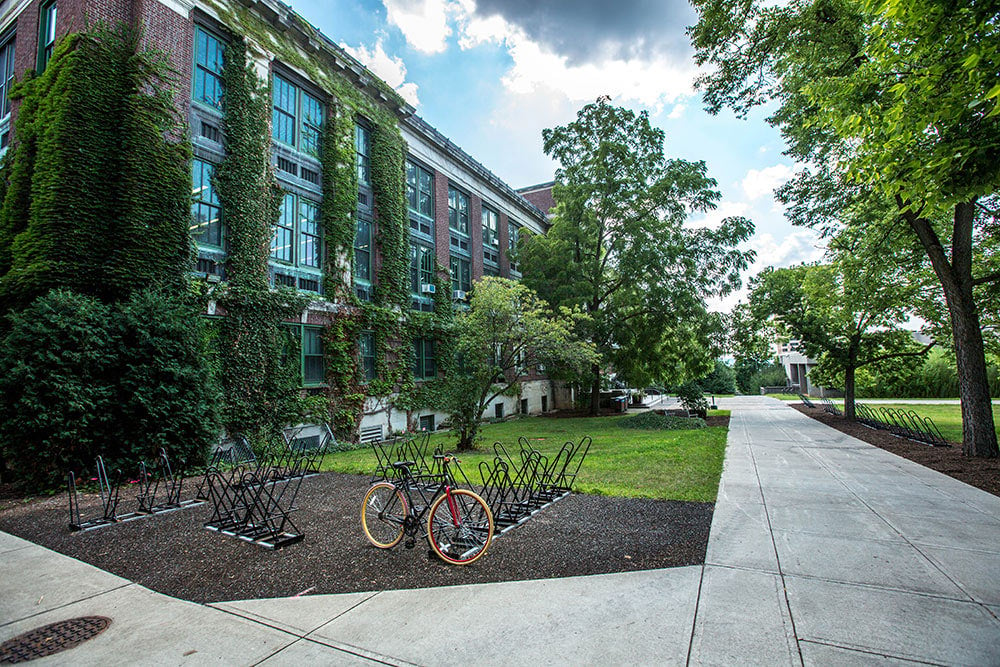 Boarding schools guide students in becoming independent, broad-minded, and responsible young adults. They offer environments that promote strong academic and social communities and provide rigorous support in ways that day schools cannot. Boarding schools enable students to take responsibility for their learning and growth while also ensuring that students have access to support systems that dynamically meet their needs. In this blog post, admissions directors from elite New England boarding schools share their insights on what boarding schools can offer to students and their families.
Boarding schools guide students in becoming independent, broad-minded, and responsible young adults. They offer environments that promote strong academic and social communities and provide rigorous support in ways that day schools cannot. Boarding schools enable students to take responsibility for their learning and growth while also ensuring that students have access to support systems that dynamically meet their needs. In this blog post, admissions directors from elite New England boarding schools share their insights on what boarding schools can offer to students and their families.
Intentional Academic Community
Boarding schools are places where students are immersed in thoughtful, collaborative environments throughout their entire day. The rich combination of academics, extra-curriculars, and residential spaces allows for learning and teaching to extend beyond the classroom walls. “Boarding school communities are uniquely and intentionally designed to foster these opportunities for our students; as 24/7 living and learning environments, we embrace teaching and learning that extends beyond the limitations of a classroom and an academic schedule,” says Allison Letourneau, Director of Admission at The Berkshire School in Massachusetts.
Given the breadth of boarding school offerings and the unique experiences that they afford their students, parents might be unsure where to begin in their search for their child’s boarding school. “I think a great starting point for parents is the school’s Mission Statement,” advises Rich Ryerson, Associate Director of Admissions at Kimball Union Academy in New Hampshire. “This will tell you a great deal about a school’s culture and identity.” Ryerson also suggests consideration of programmatic offerings, “for example, if my child loves engineering and ‘hands-on’ projects, I will be able to see if the school has a strong STEM program, perhaps offering courses in engineering or fabrication.” Ryerson points out that a school’s size and location are important qualities to consider, alongside a child’s learning style. “Does your child want an intense academic setting surrounded by other highly competitive students or perhaps a setting with more of a range of abilities. Perhaps a setting with academic support services is needed to help bolster a student’s success when mild learning challenges are part of the learner’s profile.” Ryerson also discussed the consideration of geography in connection with school programming. “If your child enjoys the outdoors–activities such as mountain biking, kayaking, hiking or being part of an environmental club–then a school with an emphasis on “place-based” education might be appropriate.”
Advisory
Alongside traditional faculty instruction, boarding schools typically provide each student with an advisor to help them grow and thrive. Students meet regularly with advisors and receive ongoing, individualized mentorship and guidance. Faculty advisors become trusted adults with whom students can share their aspirations and their challenges.
“Faculty advisers take primary responsibility for shepherding students through their time at St. Paul’s School in New Hampshire and serve as a liaison between the student, their teachers and their family or guardian,” explains Admissions Director Dana Anselmi. “Advisers strive to cultivate an atmosphere of trust so that students can openly discuss their hopes, dreams, and goals – they assist students in their academic programs and course selections, keep abreast of students’ athletic commitments and community activities, and provide the friendly support, trust, and understanding that undergird adolescent growth and development.” At many schools, advisors and students may also meet for meals or gatherings that further support strong community bonds.
Independence
Boarding schools help prepare students for life in college and beyond by allowing students to take responsibility for their own spaces and schedules. Students are able to experience the freedom of having greater ownership of their day-to-day decisions. They learn to advocate for themselves, choose the activities that they want to be a part of, and stay organized, while receiving ongoing support and structure from their school.
“We have lots of student leadership opportunities as well as experiences for students to try on new things and have new experiences,” explains David Tutle, Admissions Director emeritus of Westover School in Connecticut and current president of the Small Boarding School Association. “As a small school, we can offer more of these opportunities and the kids can take academic and social risks that they may not in larger systems. Of course, there are systems around boarding life that help as well. Having the ability to go into town, being responsible for your own space, managing your schedule, and making sure you utilize the resources available to you when you stumble, and there are times you will.” Boarding schools can be safe, nurturing spaces for students to explore beyond the bounds of their respective families and learn who they are on a deeper level.
Social and Emotional Wellbeing
As boarding schools provide holistic support for students, they have robust offerings and services to meet students’ social and emotional needs. These schools provide many layers of care, from advisors to dorm parents to social events and nutritional programs. Boarding schools recognize the significant challenges that young people face and have designed programming and structures to help their students grow as full people. “The world is fraught with conflict, and there are a lot of challenges to a teenager’s emotional, social and psychological well-being,” says Maureen Smith, Director of Admissions and Financial Aid at Marvelwood School in Connecticut. “Student health and wellness is a priority. Our faculty are well trained and well-versed in teaching and modeling what it means to have a healthy lifestyle. Marvelwood’s approach to supporting doesn’t stop when students walk out of the classroom or during a tutoring session, rather, it is incorporated into all that we do. In every aspect of our school culture, we prioritize healthy choices. We emphasize the importance of the student/faculty relationship, improve students’ self-confidence and self-advocacy skills, encourage healthy choice-making, and provide the social and emotional support our students need to become their best selves.” Boarding schools are poised to offer students extensive pathways to develop and nurture their mental health and social development, from counseling and nutrition to events and community-building.
Is Boarding School the Right Choice?
It is common for parents or caregivers to wonder if boarding school is the right fit for their child and their family. The prospect of less contact with their children can bring up concern or worry. Meghan Grover, Director of Admission of The Milbrook School in New York points out that less than one percent of American high schoolers attend boarding schools, so it is easy to understand parents’ lack of familiarity with this option. “The key to understanding the experience is to experience it for yourself,” Grover says. “Once you get on campus and speak to boarding school students, families, and faculty, you will quickly see and hear the meaning and value of the boarding school experience.” Additionally, boarding schools have structures in place to intentionally facilitate quality time between students and their families. Boarding schools have established longer breaks to provide families with more time to spend together over holidays. During vacations, the homework load is reduced so that students can focus on their time with loved ones. Families are welcome to visit campus and take part in performances and sporting events. Students are welcome to use their technology to stay in touch with their families and make sure they know what is going on in their lives.
If you’re interested in learning more about boarding schools for your student, please contact our office for assistance.
By Brad Hoffman, Board Certified Educational Planner, Faya Hoffman, Board Certified Educational Planner, and Laurie Gross, Reading Specialist and Special Educator.

